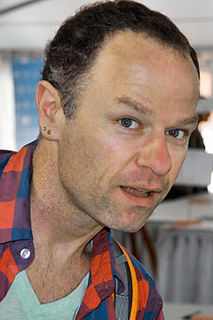A Quote by Elizabeth Bibesco
The image of ourselves in the minds of others is the picture of a stranger we shall never see.
Related Quotes
Friendship Never explain -- your friends do not need it, and your enemies will not believe it anyway. A real friend never gets in your way, unless you happen to be on the way down. A friend is someone you can do nothing with and enjoy it. However much we guard ourselves against it, we tend to shape ourselves in the image others have of us. It is not so much the example of others we imitate, as the reflection of ourselves in their eyes and the echo of ourselves in their words.
We have the need to be accepted and to be loved by others, but we cannot accept and love ourselves. The more self-love we have, the less we will experience self-abuse. Self-abuse comes from self-rejection, and self-rejection comes from having an image of what it means to be perfect and never measuring up to that ideal. Our image of perfection is the reason we reject ourselves the way we are, and why we don't accept others the way they are.
Maybe the only thing each of us can see is our own shadow. Carl Jung called this his shadow work. He said we never see others. Instead we see only aspects of ourselves that fall over them. Shadows. Projections. Our associations. The same way old painters would sit in a tiny dark room and trace the image of what stood outside a tiny window, in the bright sunlight. The camera obscura. Not the exact image, but everything reversed or upside down.
To see ourselves as others see us can be eye-opening. To see others as sharing a nature with ourselves is the merest decency. But it is from the far more difficult achievement of seeing ourselves amongst others, as a local example of the forms human life has locally taken, a case among cases, a world among worlds, that the largeness of mind, without which objectivity is self-congratulation and tolerance a sham, comes.
A stranger can see in an instant something in you that you might spend years learning about yourself. How awful we all are when we look at ourselves under a light, finally seeing our reflections. How little we know about ourselves. How much forgiveness it must take to love a person, to choose not to see their flaws, or to see those flaws and love the person anyway. If you never forgive you’ll always be alone.
The remarkable thing is that we really love our neighbor as ourselves: we do unto others as we do unto ourselves. We hate others when we hate ourselves. We are tolerant toward others when we tolerate ourselves. We forgive others when we forgive ourselves. We are prone to sacrifice others when we are ready to sacrifice ourselves.
When we see the relatedness of ourselves to the universe, that we do not live as isolated entities, untouched by what is going on around us, not affecting what is going on around us, when we see through that, that we are interrelated, then we can see that to protect others is to protect ourselves, and to protect ourselves it to protect others.






































